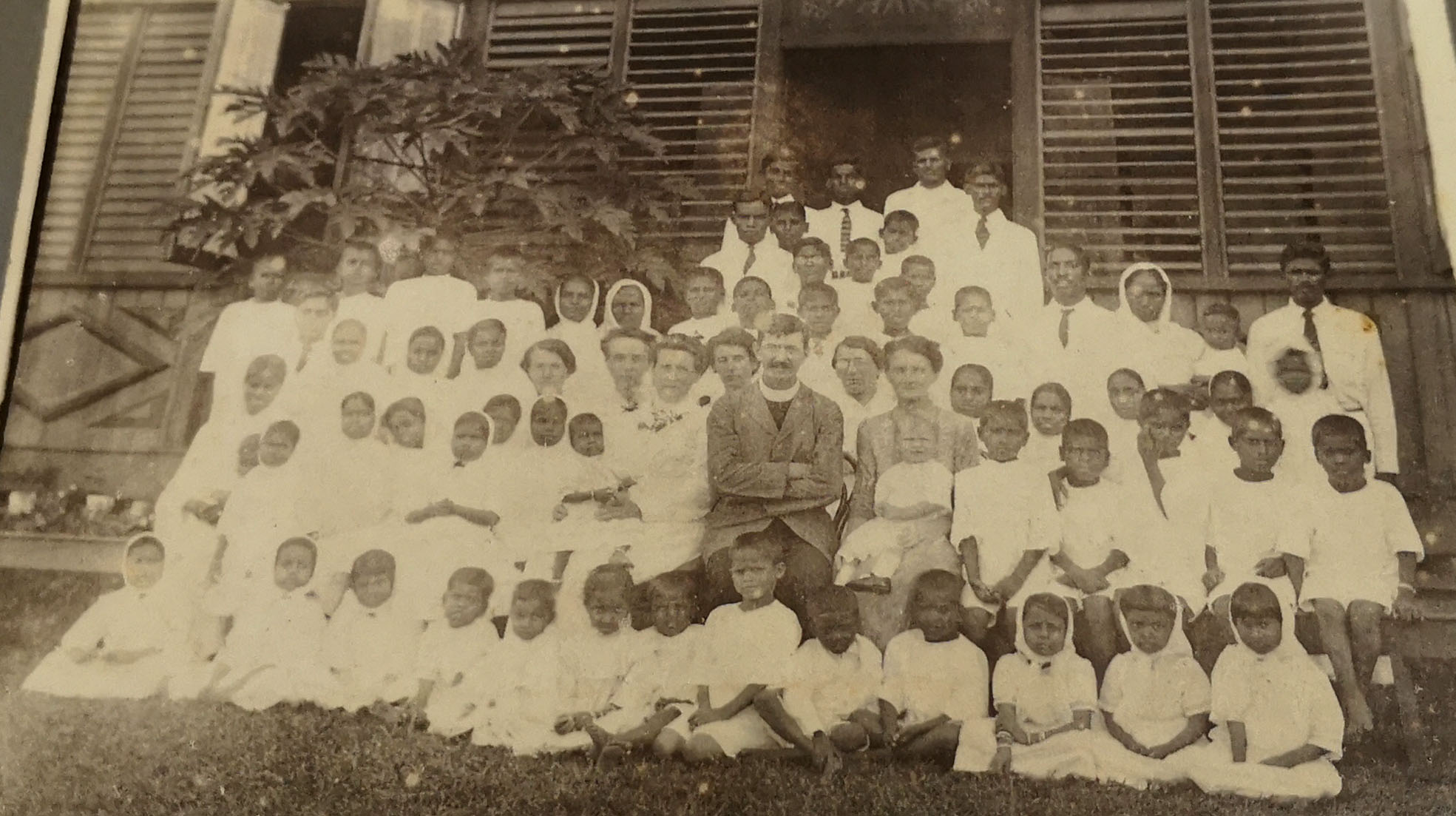History
DILKUSHA means “happy heart”. And for the thousands of children who call the orphanage “home”, the Methodist Church facility was where they were first embraced and loved and learnt to love. Abandoned for whatever reason, some even at the doorstep of the establishment, Dilkusha has provided warmth, care and a safe space where children learnt about life and blossomed into strong and definitive members of society. And as the refuge celebrates its 114th anniversary this year, one thing that every child that was nurtured at Dilkusha has learnt is to never let the circumstances that led to them being abandoned determine their future.
Beginnings
The Methodist Church recruited pastor John Williams from Faizabad, India, to establish an Indian Christian Mission in Fiji. From 1892 to 1894, Mr Williams conducted his ministerial work to both the “free” Indians and the indentured labourers for the Colonial Sugar Refining Company in the Nausori area. The second attempt to establish an Indian Christian Mission was through Hannah Dudley, who conducted her first missionary work among the 10,000 Indian girmitiya in Fiji. She volunteered to come to Fiji from the Methodist Church in New South Wales and arrived in 1897. Her work with waifs and street urchins until 1913 was mainly focused within the Toorak and Samabula area of Suva where her work was memorialised in the naming of Dudley Church and Dudley High School. The missionary work by both Mr Williams and Ms Dudley laid strong foundations for the Indian Christian Mission. This was reflected on the establishment of the Indian Mission in 1901 under the leadership of district chairman the Rev Arthur James Small. The Rev JW Burton was appointed to Davuilevu and in the years that followed the home grew from a refuge to an orphanage. The home was operated by the Indian Division of the Church, originally with the intention of caring for children from Indo-Fijian families. How the Indian mission became Dilkusha reads like the biblical story of baby Moses being wrapped and placed in a basket and left to float in the river to escape certain death. In similar fashion, an Indian lady dropped by the Indian Christian Mission in Fiji and placed a basket within the premises. The basket was discovered and within it two little babies. This year was 1904 and this single desperate act inspired the establishment of the now Methodist Dilkusha Home.
Today
The Dilkusha Home has over the years, catered, loved and cared for the needs of more than 2000 children. In an emotional interview with this newspaper, Methodist Dilkusha Home superintendent Deaconess Salaseini Watisovea Kacivakawalu shared her experience and stories of children that have been nurtured in the home. “Children normally do their duty in the morning, one morning they were running late and they didn’t come to breakfast,” she recollected. “I just live up in a cottage which overlooks them. “And I saw them watching parents coming in the morning to drop their children off at school. “When a parent got off the car, carried the child’s schoolbag, entered the school gate and gave a kiss on the child’s forehead, the brooms and the rakes that the children were using all stopped. “They just stood and watched. “It was so emotional and I was wondering what kind of questions were running through their heads. “One of the children ran up to me and she grabbed my hand and I asked her what happened. “She said ‘nothing aunty’, but her body language spoke volumes. “These are the types of challenges we face and we try to meet them all by providing for their needs — education, social empowerment and academic — but it cannot replace the fact that they miss their parents or want to know what a parents or want to know what a parents love feels like.”
She said every child was given equal opportunity to experience life and that was the mission of the home — to bring up the children in a Christian way.
Ms Kacivakawalu said the Methodist Dilkusha Home was home to kids from diverse cultures, backgrounds and ethnicity.
“We receive abandoned children, children who are traumatised, children who are emotionally, physically and sexually abused. Having all these kinds of challenges is why we have to move to another level of service and we are trying to offer that kind of service.”
Ms Kacivakawalu said despite the daily challenges faced at the Methodist Dilkusha Home, she and her staff members continued to impart Christian principles and the Word of God to the 42 children at the orphanage.
“The words of Jesus empowers the children that no matter where they live, whether they are with or without their parents, Jesus love is still in abundance and plentiful especially in the walls of Dilkusha Home.
“My favourite Bible verse is Psalm 127 that says children are a gift from God. “And I also like to relate another teaching from Jesus in Mathew 18:4 ‘whoever welcomes this little child in my name, welcomes me’.
“You welcome a little child, you welcome God. Whoever the child is, whether it comes from wedlock or out of wedlock, the child has the love of God. That’s what we try to do here at Dilkusha.”




